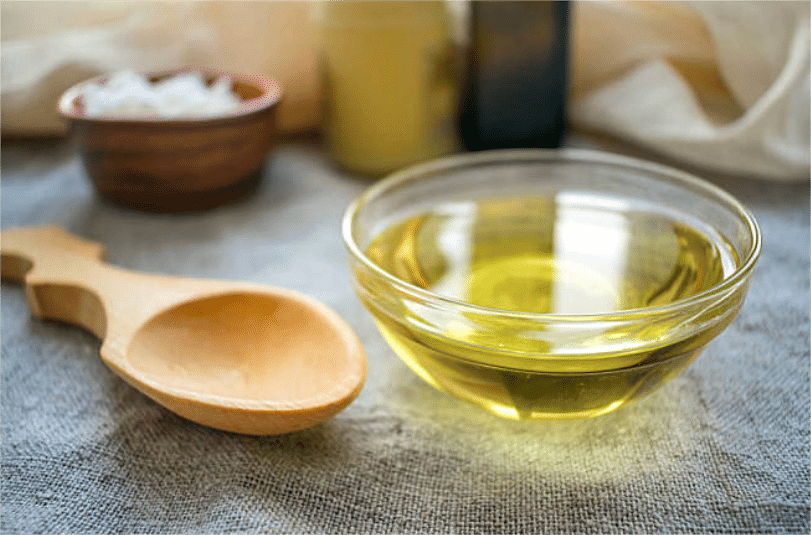What is borage oil ?
What flaxseed oil ?
Borage oil and flaxseed oil are both plant-based oils that are highly valued for their health benefits, but they have different properties and primary uses. Here’s a comparison of the two:
1. Source:
- Borage Oil: Derived from the seeds of the borage plant (Borago officinalis), which is native to the Mediterranean region.
- Flaxseed Oil: Extracted from the seeds of the flax plant (Linum usitatissimum).
2. Fatty Acid Composition:
- Borage Oil:
- Gamma-Linolenic Acid (GLA): Borage oil is one of the richest natural sources of GLA, a type of omega-6 fatty acid. GLA is known for its anti-inflammatory properties.
- Omega-6 Fatty Acids: In addition to GLA, borage oil contains other omega-6 fatty acids, which support skin health, immune function, and overall inflammation reduction.
- Flaxseed Oil:
- Alpha-Linolenic Acid (ALA): Flaxseed oil is one of the richest plant-based sources of omega-3 fatty acids, particularly ALA, which is converted into EPA and DHA (although conversion is limited in humans).
- Omega-3 Fatty Acids: Omega-3s are known for their anti-inflammatory effects, cardiovascular health benefits, and support for brain function.
3. Health Benefits:
- Borage Oil:
- Skin Health: Borage oil is often used for managing skin conditions such as eczema, dermatitis, and psoriasis due to its high GLA content, which may help reduce inflammation and promote skin barrier function.
- Hormonal Balance: GLA may also support hormonal balance and reduce symptoms of premenstrual syndrome (PMS).
- Anti-Inflammatory: Its GLA content gives borage oil strong anti-inflammatory properties, which can benefit conditions like rheumatoid arthritis.
- Flaxseed Oil:
- Heart Health: Flaxseed oil, with its omega-3 content, is beneficial for cardiovascular health by helping to reduce blood pressure, cholesterol levels, and inflammation.
- Brain Health: Omega-3s are important for brain health and cognitive function. Regular consumption may support memory and mental clarity.
- Digestive Health: Flaxseed oil can also support digestive health due to its omega-3s and fiber (when consumed with ground flaxseeds).
- Hormonal Support: Omega-3s can help balance hormones, particularly in women with menstrual irregularities or menopause-related symptoms.
4. Use in Cooking:
- Borage Oil: Not recommended for high-heat cooking due to its delicate structure. It’s often used as a supplement or added to smoothies, salads, or skin-care products.
- Flaxseed Oil: Also not ideal for high-heat cooking as it has a low smoke point, but it’s great for cold applications like salad dressings or smoothies.
5. Side Effects & Considerations:
- Borage Oil:
- Toxicity in High Doses: Borage oil can be toxic in very high doses due to the presence of pyrrolizidine alkaloids, which can harm the liver. However, high-quality borage oil is typically refined to remove these compounds.
- Blood Thinning: Like many omega-6 oils, it may have a mild blood-thinning effect, so caution is advised if you’re taking blood thinners.
- Flaxseed Oil:
- Blood Thinning: Flaxseed oil can also have a blood-thinning effect due to its omega-3 content, so people on anticoagulant medications should consult a healthcare provider.
- Gastrointestinal Effects: Large doses of flaxseed oil may cause digestive issues like diarrhea or bloating.
6. Best Use Cases:
- Borage Oil: Best used for skin conditions, inflammatory conditions (like arthritis), and hormonal balance.
- Flaxseed Oil: Excellent for cardiovascular health, brain function, digestive health, and reducing inflammation, especially in individuals looking to increase omega-3 intake.
Conclusion:
- Borage oil is an excellent choice if you’re looking to improve skin health or manage inflammation related to conditions like arthritis, thanks to its high GLA content.
- Flaxseed oil, on the other hand, is best for those seeking to boost omega-3 fatty acid intake, improve heart health, and support brain and digestive health.
Both oils have distinct benefits, so your choice depends on your specific health goals.



